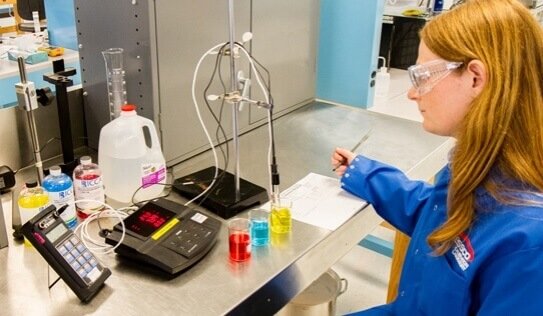Is Calibrating Testing Equipment Must in Food Lab?
Calibration is a comparison between a known measurement (the standard) and the measurement using your instrument. Calibration of your measuring instruments has two objectives.
- It checks the accuracy of the instrument and reduces the risk of error
- It determines the traceability and repeatability of the measurements
When we need to calibrate the equipment:
- As per the supplier SOP (Standard Operating Procedure).
- After any mechanical or electrical shock.
- Periodically (annually, quarterly, monthly, daily)

Advantages of frequent calibration:
1. Quality Assurance – Even if there is no FSSAI to hold food manufacturing companies accountable, commitment to quality would still be critical factor for market success. With properly calibrated instruments used at every stage of the production lifecycle, ensuring the highest quality becomes easier.2. ISO Certification – Calibration is an important aspect of quality monitoring and assurance, which affect everything from a regulatory inspection for FSSAI compliance to International Organization for Standardization certification. To meet the requirements for ISO 9000 certification, a food business operator needs to have adequate monitoring procedures in place and calibration is one of these.3. Higher Traceability – Calibrated instruments also offer the highest degree of accuracy, minimizing errors so they fall within acceptable limits. Since they’re traceable to national or international standards, calibration reports help with both internal and external audits.
- 4. Equipment Performance – Regular testing makes it easier to ensure that equipment performs at optimum levels, reducing breakdowns and extending its lifespan.
5. Cost Savings – A proper validation process does more than just offer better control over product quality, it can also help save money. Inaccurate measurements can result in entire process being repeated or “bad” batches being discarded, raising energy consumption and operating costs.
6. Risk Mitigation – Calibration helps to ensure that potential risks are minimised, whether they are physical, biological or chemical in nature. Quality and compliance problems can involve heavy costs in more than one way, so it’s essential to stay on track with your validation program and compliance-related testing.
7. Green Benefits – If the equipment runs at optimum performance levels, there is less wastage of raw material, as well as lower pollution. This helps a food business operator to minimize manufacturing expanses, create more goodwill and reduce the company’s carbon footprint.

